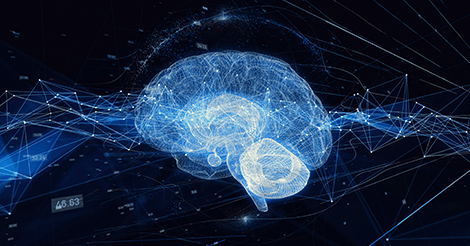Who went to HIMSS 2019? DataBank was in attendance, and we’d love to talk about some of the key topics of discussion.
To start, if you haven’t heard of the HIMSS Global Conference & Exhibition, it’s the healthcare industry’s biggest health information and technology educational program and exhibition center, led by the Healthcare Information and Management Systems Society. This year, the event focused on a rich combination of recurring and innovative healthcare topics, offering many education sessions featuring thought leaders from the industry.
Some of the main education topics covered:
- Consumer, patient engagement & digital/connected health
- Cybersecurity
- Data science, analytics, clinical & business intelligence
- Health information exchange, interoperability, data integration & standards
- Telehealth
- …and many more!
Three Main Themes from HIMSS 2019
1. Artificial intelligence
Artificial intelligence remains to be a key topic of interest and conversation throughout healthcare. During the event, we heard from both healthcare organizations who are on the forefront ready to go, as well as orgs who feel strongly that the industry is a long way off from integrating AI in a significantly impactful manner.
Though its development continues to advance, AI is still a new technology. At present, the main focus from the healthcare world is on predictive models. Healthcare organizations are interested in being able to analyze large data sets and use them to generate predictions, such as when certain people with particular behavioral characteristics, lifestyle choices, etc. may fall ill and/or what type of treatments they’ll need.
There’s a great deal of buzz around ML, AI, and their potential to revolutionize healthcare, but these technologies are still evolving, and will require a lot of work. Right now, AI is certainly capable of collecting information and sorting through it—eventually, it will be capable of categorization. However, true predictability models call for richer information set; from metabolic rates to lifestyle choices and genetics, a lot of variables come into play. The general consensus is that we’re a long way off before AI has a major impact on healthcare, but it’s coming.
2. Client and patient engagement
Increasingly, technology is being used to collect and provide more data on individual patients. There’s a strong focus on improving the patient experience while using data to make better organizational decisions.
Healthcare organizations are evaluating tools, technologies, and programs built to forge partnerships between patients, caregivers, & families and their providers. The ultimate goal is to enable patients to take control of their health and healthcare decisions.
Because the economy today is consumer-based, it’s important for healthcare organizations to put the emphasis on using technology to make health easier for people, including both clinicians and patients. However, even with modern advancements like telemedicine, connecting services and the data that accompanies it along the care pathway remain a challenge.
3. Interoperability
Information management remains an ongoing obstacle throughout healthcare IT. Innovators are trying to figure out how disparate systems can communicate, connect, and share exchange information between each other: interoperability.
For instance, if a patient visits a hospital to see an immunology specialist, that doctor should have the capability to pull other medical records in order to easily tie together information relative to current medical conditions.
When technology is seamlessly interoperable, the possibilities are endless. The simple transition from paper to digital health records has certainly transformed the delivery of care, however, consistently linking patient records in different locations (patient matching) is still a persistent challenge. Fortunately, new research is leading to the breakdown of the interoperability barrier, bringing healthcare closer to arming patients and providers with current, complete data.
“There’s a really strong focus on interoperability. Today, healthcare is about the client experience, and providers really need complete information to make better decisions for patients. Information has to be readily available.”
-Matt Horne, Sr. Account Executive, DataBank
DataBank is dedicated to keeping pace with the ongoing evolution of healthcare IT, and our solutions are built to empower healthcare organizations to meet their digital objectives.
- FedRAMP compliant
- HIPAA and PCI compliance accredited
- Built to power high performance computing
If your healthcare organization is looking for guidance on your technology objectives or has questions about compliance, DataBank is here to help. Reach out to DataBank today, or call us at 1.800.840.7533 and speak to an expert.




